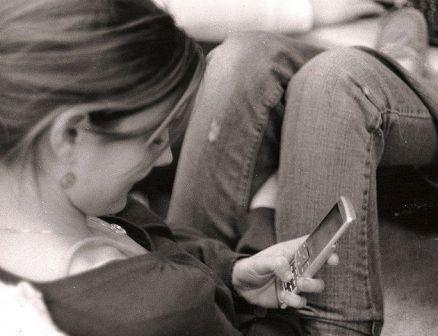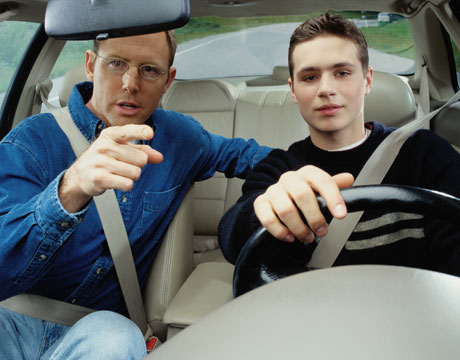Turning the Tables on Expectations: What Teens Need from Parents
Expectations. We all have them. Even babies. They expect to be fed and changed. That someone will come to them in the night when they cry. How about learning to sit up, crawl and walk? All require a belief in the potentiality of things.
But when parents fail to fulfill their children’s expectations, children lose hope. Their fire goes out, and they give up on the world. 
By the time kids are teenagers, it’s often too late.
My friend “Dee” called me early one Sunday morning. Her seventeen-year-old daughter, “Hanna,” had failed to come home the night before. She hadn’t even called. “What should I do?” Dee wailed into the phone.
So many “what ifs.”
I ran through the usual stuff: Who was her daughter with? When was she expected home?
Dee’s voice choked with anger. She suspected an older boy and was ready to pound on his parents’ door.
Divorced, Dee is one of millions of women shouldering the responsibility of parenting teens alone, kids who resent the tar out of the fact that life has handed them lemons.
But now, long last, here is Hanna on the brink of adulthood. More than ever, she needs someone to believe in her and recognize the responsible woman she is capable of becoming.
But where is the responsible father? The dad who should be home at night, having conversations with his daughter? Showing her that she is valued, and reinforcing the attributes of an emotionally healthy marriage partner.
A few years ago, Hanna’s father abandoned her and her three siblings – two older, one younger. And in abandoning them, failed to meet their expectations.
I took the conversation in a different direction. “Dee, have you told Julie what your expectations are?”
“What do you mean?” she asked.
“You need to tell her that she has the potential to do something with her life,” I said. “And that each decision she makes will impact her future. You have to encourage her. Guide her – so she believes she can make more of her life.”
Easier said than done for a single mom.
By telling Hanna she’s worth more than giving herself away to some guy who still lives with his mommy and daddy and thinks she’s cute, Dee is fulfilling Hanna’s expectation of what a parent should do and be like.
Better that one parent try, than none at all. And with Julie’s future hanging in the balance, Dee had damned well better try.
So they had the conversation. Dee said she tried to stay grounded, and not just rant platitudes about what happens to girls who stay out all night.
Julie hugged and thanked Dee, saying she hadn’t realized how much her mother cared about her.
Hanna’s emotional reaction surprised Dee.
Her younger daughter, “Adrianna,” 14, had listened in on the conversation. “Good job, Mom!” she said afterward. Her mother’s down-to-earth approach had impressed her. 
It’s not going to be a quick fix for Hanna. She and her siblings are grieving the loss of their father – a man now living in another state with another woman and another set of kids. A fact so emotionally painful for his birth children, I cannot begin to imagine it.
Hanna’s behavior puts her at risk of teen pregnancy, not finishing high school or college, and poverty. If she has a baby, she will expect the child to nurture her and make her feel good about herself. She will have a hard time loving the child for himself.
In his book, The Sibling Society (1996, Addison-Wesley Publishing), poet, storyteller and lecturer Robert Bly writes about the effect of parental abandonment on teens. “As adolescence ends – if there is no effective initiation or mentorship – a sad thing happens. The fire of thinking, the flaring up of creativity, the bonfires of tenderness, all begin to go out. It’s as if the Army Corps of Engineers channels wild rivers into concrete banks.”
When kids feel abandoned, emotionally or physically, it creates stress and anxiety. They want to escape from it all. Or like Hanna, run to the closest thing that likes them back, or makes them feel good.
I think of the unparented teens I know who bury their heads in computer games, striving for greatness in the cyber-world, a world where they dare to imagine that what they do matters. The loss of real relationships in their lives is crippling. 
Bly writes, “The computer culture, an ineradicable element of sibling life, is producing isolation…The punished son exiled “to his own room” is now replaced by the Internet son. Computers, as we know, lead to further drying up of conversation with adults; and the son becomes locked away in his own feelings.”
Not all unparented kids lack parents, however. Some are products of narcissistic adults – children, really – who think they need to have kids to complete their lives in some way, like buying the latest iPhone or big screen TV. Or maybe their kids were “an accident.” But how can adults who remain adolescents themselves deal with their teenager’s need for nurturing?

The truth is, they can’t
“Just go play on your computer and give me ten minutes on the phone,” the mother says. Or, “Of course you can spend Saturday night at Johnnie’s house. I have a date.” Instead of behaving like parents, they behave like jealous siblings. And sibling rivalry, as we know, can get pretty ugly. These child-parents behave much like irritated older siblings anxious to rid themselves of a bothersome younger brother or sister. They use bribes and threats to make their kids behave, instead setting an example, engaging in conversation, and establishing routines and rituals.
This is not guidance. It’s lunacy. This kind of sibling-parenting leaves kids feeling cast-off, like a broken toy. They need attention, and will argue and fight with their parents, all because they don’t have anyone to model adult behavior.
And so the kids are left to play, and stay out their parents’ hair, and out of their troubled and erratic lives. They become numb, floating in their heads in the cyber-world, or engaging in risky behaviors, so they do not have to think about their parents’ abandonment.
At least when they go on Facebook, their friends will “like” them, which is more than many of their parents do.
Every child has expectations of his or her parents. They need supper. A ride. A dollar. A hug when they’ve have a bad dream. Someone to teach them how to drive a car.
When children’s expectations are not fulfilled in the most basic way, the flame goes out and hope dies. So fan the flame. Be there. And meet expectation. FFG




Leave a Reply